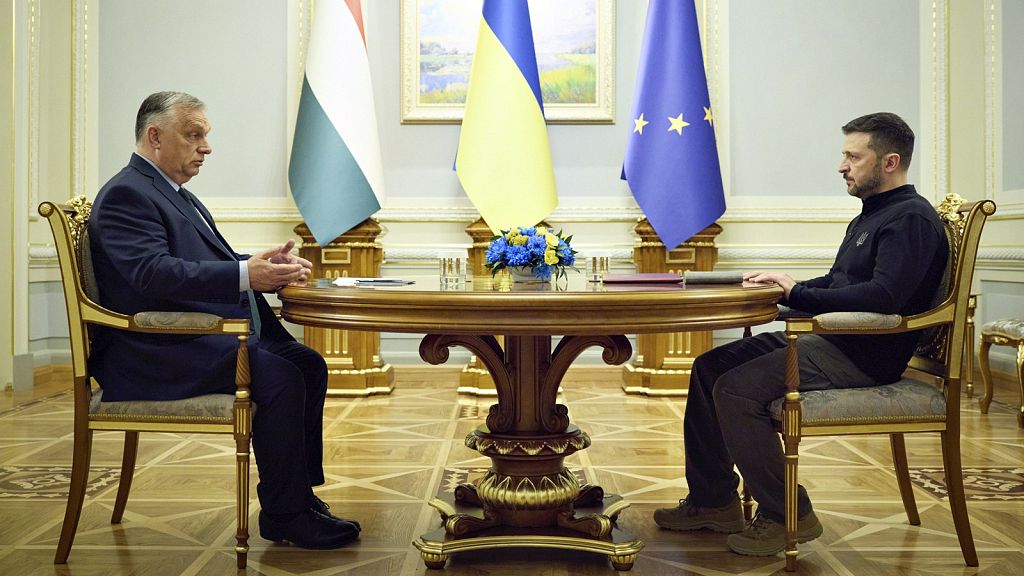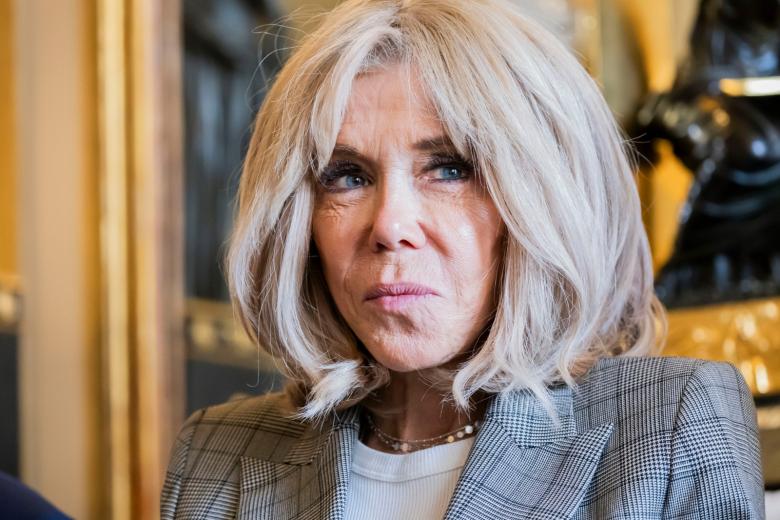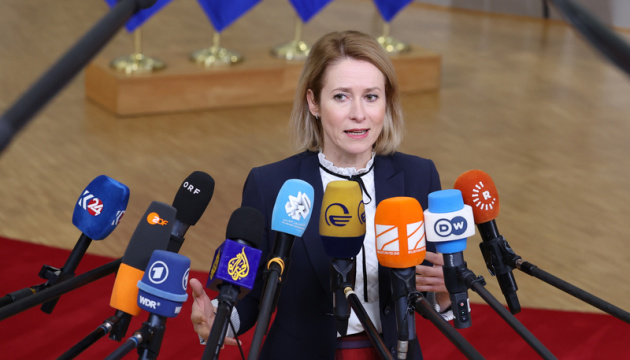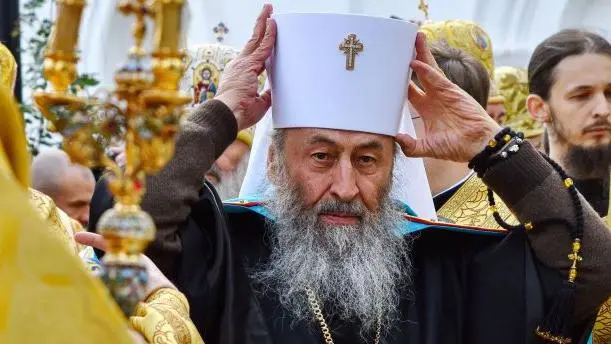The mystery of two Igors — the Russian poet Severjanin and Count Caruso. 2
Источник: | Фото взято из оригинала статьи или из открытых источников
26.06.24 | 3304


Countess Sofia Caruso, née Stavrokova, was awarded a single poem and she is not included in Igor the Severyanin’s Don Juan list. Here it is «Lily in the Sea» (Interlinear translation «Лилия в море»):
She came during intermissions — beautiful, slender, pale,
With eyes that almost poured all their blue into mine,
Arrogant, proud, young and yet poor, poor
I stood in my alien surroundings, harboring a dream.
Although her world-famous surname is titled,
Although her husband's treasures are stranger than any miracles,
There was this quiet woman — like a sad white lily,
Caught in the sea, born, it would seem, to dream in a pond...
And in that artsy city my performances were crowned
With tulips and hyacinths in countless rows of baskets,
To which the envelopes are pinned with the crown of a yearning woman,
Who dreamed of crossing our different, dangerous paths...
But somehow there was no time to have a friendly conversation with her:
Captured by other eyes, I did not seek a meeting with her,
Although I could not help but feel its ashen glow,
Not knowing that she is an overflowing and thirsty glass...
And once, only once, in the rapture of the triumphant reception of the crowd,
Descending from the stage along a ladder leading with an iron screw,
I ran into her, pressed against the wall, and could not bear the sad
A pleading gaze — touched her lips with a still warm verse...
Toila, 1930.
_________________
Sofia Ivanovna Stavrokova was born on June 23, 1893 in Yalta in the family of a zemstvo judge (judge of local area) and died on May 17, 1985 in Vienna, Austria. Stavrokov family lived on their own estate in Tiraspol. Sofia graduated from the Institute of Noble Maidens in Kharkov, and then she completed her studies at the Higher Women's Courses in Moscow.
In 1913, Sofia Ivanovna, at less than 20 years old, married military officer Alexander Grigorievich Count Caruso (1880-1946), a native of a family of Russified Italians. Alexander Grigorievich was the son of a Kherson landowner, provincial secretary and member of the Tiraspol city council Grigory Egorovich Count Caruso (1850-?). Grigory Egorovich was son of Egor Spiridonovich Count Caruso (1789-1835). Great-grandfather Spiridon Anastasevich Count Caruso (1771-1853). No further pedigree can be .traced
Alexander Grigorievich and Sofia Ivanovna gave birth to a son, Igor Alexandrovich Count Caruso (January 23, 1914, Tiraspol, Transnistria — June 28, 1981 Salzburg, Austria). Count Igor Alexandrovich Caruso, was a famous psychoanalyst in Austria.
Presumably, in 1920 the Caruso family left Russia. First, the family lived in Romania, then in Belgium. Igor was sent to study at a boarding school.
In Estonia, the young Count Caruso married Irina Andreevna Grauen, a beauty from the family of the Russified German Andres Grauen (1886-1942). After the death of her husband, Sofia Caruso moved to Vienna to live with her son. She spent her last years with Igor’s only daughter, Alexandra.
_______________
I asked my good friend Carmelo Currò Troiano, a famous Italian genealogist, to dig a little into the history of the Caruso family:
«In quanto al titolo di conte, non riesco a trovarne. Il cognome caruso (è una parola del dialetto siciliano che significa calvo) è molto diffuso in Italia, e quindi non si può identificare una singola famiglia. Cè stata una famiglia caruso siciliana che portòl il titolo di barone ma di conti non ho sentito parlare. e comunque la famiglia dei baroni caruso credo che sia estinta da secoli
Carmelo Currò Troiano».
«Dear Friend, I tried to fine notices about the person you asked notices. I says there are several Caruso in out army, then their surname is very numerous in South Italy, and it’s impossible establish if many are relatives. I did also many researches in our Nobility, then we have not a family of counts with this surname; only a noble family Caruso lived in Modica (the original city of my family), in Sicily (in Sicilian dialect Caruso is "bald") in XVI and XVII century then already in the first years of XVII century they died all without descendants. i already wrote You this surname is original of Sicily. Since that period, we had not a Noble Caruso family. I believe same person may use the title without to have right. I know that in the mid-nineteenth century many Italian workers emigrated from southern Italy and settled in Crimea for the great works that the Russian government organized and their descendants are still there today. You might ask if there are families with this surname/
Carmelo Currò Troiano».
As far as I know, no one challenged Caruso’s count title in Russia in the 19th century. Thus, the question is whether the young Italian Igor Caruso is the grandson of Igor Alexandrovich (son of Alexandra).
All this makes sense if Igor Alexandrovich Caruso is the son of Russian poet Igor-Severjanin. The topic has been postponed, but not closed.
__________________
Having counted the required 9 months from the official date of birth of Igor Alexandrovich Caruso - January 23, 1914 — we can judge that by the end of May or the beginning of June 1913, Sofia Ivanovna was expecting a child.
However, let us return to the poem “Lily in the Sea.” We are dealing with a story in which specific intimate details mentioned that could only know to the author and his addressee. In these details, there is no room for coquetry or fantasy — just statement of facts.
It is not only that memorable kiss that matters, but also the location of the action. The poet performed for the first time in Kharkov on March 7, 1913 in a concert by Russian poet Fyodor Sologub as a curiosity. The first edition of the “Thundering Cup” [Громокипящий кбок] was published in Moscow on March 4 and is unlikely to have reached Kharkov by March 7.
“She came during intermissions” — this is about four performances in Kharkov in February-March 1915. As for the kiss, most likely it took place on March 2, 1915 in Kharkov at the third poetry evening in the hall of the Public Library. The dreams of uniting the destinies of Igor and Sofia mentioned in the poem, are greetings from the past. It cannot be explained solely as an accidental kiss. In fact, this is a belated explanation for the refusal to merge destinies. Therefore, the kiss has a background.
____________________
The poem "Lily in the Sea" was dated “1930” in Toila [Estonia]. There is no exact date, but it is obvious that it was written for a specific reason. The only possible reason is a letter mentioning Sofia Caruso, from someone in Paris. Caruso resided in Austria, but the poet seems to have promised a personal meeting in Paris. That time the meeting did not take place. However, there is a letter from the poet to Sofia Ivanovna dated February 25, 1931, sent to Vienna from Paris. It starts like this:
“Bright Sofia Ivanovna!
Only yesterday, I managed to receive your letter. I am sincerely glad that you are safe, that you are alive. I have often remembered you over the years; I really wanted to find you.”
The poet’s emotions are clearly disproportionate to the 15 years ago accidental kiss. The poet remembers the circumstances — she came in during the intermission. He remembers her first name and titled surname (nobility).
The anticipation of the meeting excited the poet so much that he was inspired to write the romantic dedication, “Lily in the Sea.” He immediately included this poem in the poetry collection “Classical Roses,” [Классические розы] that was just supposed to be publish in Yugoslavia. There are no other poems dedicated to Sofia Caruso.
The kiss on the stairs behind the stage seemed to have neither a backstory nor a continuation. However, fifteen years later, the poet’s memory retained a sufficient number of romantic details around story. For some reason, Igor-Severyanin remembered the story, often thought about Sofia Caruso and even wanted to find her. There has to be a good reason other than an accidental kiss!
__________________
Most of the poet's letters to Caruso were either lost or came into the possession of the priest Sergius (Polozhensky), inherited by the poet's son Bacchus and the poet's grandchildren. Sofia Caruso's letters from 1931-1941 could have been burned in August 1941 in Ust-Narva [Усть-Нарва], along with the rest of the poet's correspondence. Sofia Ivanovna's letters to Igor-Severyanin were never published. They are not included in the collections of the Literary Museum in Tartu.
The poet's letters to Sofia Caruso differ from other correspondence in their informative content and high degree of frankness. The poet insists on a personal meeting with Sofia’s son Igor Caruso. In a letter dated September 17, 1931:
“My wife and I would like Igor to come to us next summer. We would like to meet him personally, watch him, and get to know him. This visit would not be superfluous or unnecessary in any respect.”
The increased interest in the son of a casual acquaintance is alarming: the desire to definitely see him, persistent invitations to come to the bride. Moreover, pay attention — not just to meet the young man, but also to get to know him!
In the poet's letter dated August 4. 1939 we find:
“Dear Sofia Ivanovna! I had an uncontrollable urge to write to you, although I am not sure that you live in the same place. Therefore, this letter is extremely brief. You did not write for a long, long time, I was silent, but I always thought about you. In general, I do not write anything to anyone, but you are an exception. 7.III. 1935 I broke up with F.M. and from the same day, I have Vera . She is feminine and sacrificial: it is easy for me. She has a seven-year-old daughter, Valeria. Vera divorced her husband. I will divorce F.M. in the fall. (...). Write about yourself, Al. Gr and Igor . Give a sign that you have read this letter. Around October 20, we will come to Berlin to visit friends for a month or two, and I will give a few evenings there. Perhaps we will get to Paris and Brussels. I finally have to see you before I leave Earth”.
The poet must see Sofia Caruso before she dies — such obligations are not scattered over trifles and for the sake of a catchphrase!
In a poet’s letter dated August 20, 1939 we found:
“Dear Sofia Ivanovna! I was very glad to receive your letter and wanted to answer it immediately, but I was waiting for a response from Igor Alexandrovich, to whom I wrote immediately upon receipt of your letter, i.e. Aug 11 I invited him to visit us, since we are only 4 1/2 hours from Nõmme [place near Tallinn]. ride by fast train, asked him to tell him the exact day and hour of arrival, wrote that Vera Borisovna and I would meet him at the bus, and she would be holding a folding fishing rod in her hands. However, I still have not received an answer from him for some reason, which just confuses me. M.b. Is he somewhere at the resort in Gapsala [est. Haapsalu] and Pernov? In addition, in general, I have not received a single letter from him, although you write that he wanted to write to me even before my letter. It’s a pity that it all turned out this way, but Vera and I would have been so pleased and interested to see him. We have somewhere to stay (spend the night) and swim along the rivers and talk about you in more detail. In any case, we congratulate you from the bottom of our hearts on his marriage and wish him a successful union. Nowadays, of course, this is very rare. I have heard the name Grauen: it seems he is an engineer. It is interesting to know: did I.A receive, in general, my letter? It's hard to let him not answer. We wait for news from him every day, believing that he is temporarily absent”.
____________________

The only meeting of the two Igors will take place in Tallinn in the winter of 1940. We will find the memories of Irina Grauen, the young wife of Igor Caruso, about her meeting with Igor-Severyanin in a letter kept in the Pushkin House, Petersburg:
“I saw him only once, when he visited Revel. We did not gather to see him, but he took advantage of our invitation and came to dinner with us during his visit to Revel. I don’t remember whether he was already gray-haired, but he was curly and slender, a tall man. Pleasant, well mannered. As a poet, I knew him little; apparently, his fame existed earlier, precisely during the youth of Sophia Iv. Caruso. Sofia Ivanovna was very proud of this friendship, and I am glad that she was able to send correspondence and books to Russia. She told me about this. She was not only a very cultured woman, but also a very beautiful woman”.
In the poet’s letter dated March 24, 1940 we found:
“Dear Sofia Ivanovna, (...) in the winter, while in the city, I finally met your people. Igor; of course, the son of his mother: much of him is entirely from you; He gives the impression of a modest, temperate, lively, affectionate young man. Being forced to stay here apparently confuses him. Glad I got a job. He clearly misses his parents. All the family members were kind, and I even stayed with them for dinner: I so wanted to see Igor longer and get to know him, handsome and secretly (through his sparkling youth; gaiety) sad. I hope that he will come to stay with us in the summer if he cannot go to Brussels by then. M.b., will you come by summer?”
________________
The external similarity between the poet and Count Igor Caruso is noteworthy.
In the photo suitable for comparison, the count is ten years older than the poet, and yet the similarity is obvious:
the oval face, high forehead and hairline, brow ridges, eye shape, large nose with a slight hump and narrow base, high upper lip, characteristic nasolabial fold, size of the mouth and straight line of the lips, oval of the chin, characteristic large structure and position of the ears.
Everything points in favor of kinship. Is this why the poet showed amazing persistence in finding circumstances for a personal acquaintance with the young count? On the other hand, were there other, more compelling reasons?




________________
However, there is a problem: Igor Caruso was born on January 23, 1914. We count the due date of pregnancy and find out that at this time, i.e. at the end of May the poet is already far from Kharkov. He is resting at the Pustomerzha manor in Weimarn [place near Yamburg, now Kingisepp] with Elena Semyonova and his daughter Valeria.
From excuses before the poet Fyodor Sologub we learn (Interlinear translation):
You judged me for being in a hurry
To the beloved woman, tired from childbirth,
I interrupted your tour, with frantic pain
My whole soul was yearning for her.
You also condemned me for
That on the way home I met a stranger,
That I responded to her love so tenderly,
Like maybe no one!
We only know the initials of the stranger — N.M.K-ch and her poetic name was Grisel. French grisaille is a style of painting in black and white and gray tones, imitating bas-reliefs and high reliefs. Obviously, the name is a characteristic of the hero. The acquaintance took place at the end of Holy Week on a train on the road from Kutais to Tiflis (the first day of Easter 1913 falls on April 14).
Thus, in the second half of April 1913 and the first half of May, a short romance with Sofia Caruso in Kharkov was possible. (The road from the Caucasus to St. Petersburg lies through Kharkov.) We do not know how the date of birth of Igor Caruso later recorded in Tiraspol — by the date of actual birth (?) or by the date of baptism (January 23). A gap of half a month or more is possible, which leaves room for imagination.
If the secret of the similarity of the two Igors ever revealed, the poet’s Don Juan list will significantly enriched.
__________
Do you want to see what Igor the Severyanin might have looked like in the last years of his life, what his voice and grace of movements might have been like? Watch a short excerpt from the film “Wiederholen, Erinnern, Durcharbeiten” (“Repeat, remember, work through.”) This film is a tribute to the colleagues and students of the psychoanalyst Igor Alexandrovich Count Caruso.
You can see what the poet might have looked like in the last years of his life; evaluate plasticity of movements and timbre of voice.
_____________
P.S. La mia gratitudine ad un amico italiano Carmelo Currò Troiano.
Источник: | Фото взято из оригинала статьи или из открытых источников
26.06.24 | 3304


Countess Sofia Caruso, née Stavrokova, was awarded a single poem and she is not included in Igor the Severyanin’s Don Juan list. Here it is «Lily in the Sea» (Interlinear translation «Лилия в море»):
She came during intermissions — beautiful, slender, pale,
With eyes that almost poured all their blue into mine,
Arrogant, proud, young and yet poor, poor
I stood in my alien surroundings, harboring a dream.
Although her world-famous surname is titled,
Although her husband's treasures are stranger than any miracles,
There was this quiet woman — like a sad white lily,
Caught in the sea, born, it would seem, to dream in a pond...
And in that artsy city my performances were crowned
With tulips and hyacinths in countless rows of baskets,
To which the envelopes are pinned with the crown of a yearning woman,
Who dreamed of crossing our different, dangerous paths...
But somehow there was no time to have a friendly conversation with her:
Captured by other eyes, I did not seek a meeting with her,
Although I could not help but feel its ashen glow,
Not knowing that she is an overflowing and thirsty glass...
And once, only once, in the rapture of the triumphant reception of the crowd,
Descending from the stage along a ladder leading with an iron screw,
I ran into her, pressed against the wall, and could not bear the sad
A pleading gaze — touched her lips with a still warm verse...
Toila, 1930.
_________________
Sofia Ivanovna Stavrokova was born on June 23, 1893 in Yalta in the family of a zemstvo judge (judge of local area) and died on May 17, 1985 in Vienna, Austria. Stavrokov family lived on their own estate in Tiraspol. Sofia graduated from the Institute of Noble Maidens in Kharkov, and then she completed her studies at the Higher Women's Courses in Moscow.
In 1913, Sofia Ivanovna, at less than 20 years old, married military officer Alexander Grigorievich Count Caruso (1880-1946), a native of a family of Russified Italians. Alexander Grigorievich was the son of a Kherson landowner, provincial secretary and member of the Tiraspol city council Grigory Egorovich Count Caruso (1850-?). Grigory Egorovich was son of Egor Spiridonovich Count Caruso (1789-1835). Great-grandfather Spiridon Anastasevich Count Caruso (1771-1853). No further pedigree can be .traced
Alexander Grigorievich and Sofia Ivanovna gave birth to a son, Igor Alexandrovich Count Caruso (January 23, 1914, Tiraspol, Transnistria — June 28, 1981 Salzburg, Austria). Count Igor Alexandrovich Caruso, was a famous psychoanalyst in Austria.
Presumably, in 1920 the Caruso family left Russia. First, the family lived in Romania, then in Belgium. Igor was sent to study at a boarding school.
In Estonia, the young Count Caruso married Irina Andreevna Grauen, a beauty from the family of the Russified German Andres Grauen (1886-1942). After the death of her husband, Sofia Caruso moved to Vienna to live with her son. She spent her last years with Igor’s only daughter, Alexandra.
_______________
I asked my good friend Carmelo Currò Troiano, a famous Italian genealogist, to dig a little into the history of the Caruso family:
«In quanto al titolo di conte, non riesco a trovarne. Il cognome caruso (è una parola del dialetto siciliano che significa calvo) è molto diffuso in Italia, e quindi non si può identificare una singola famiglia. Cè stata una famiglia caruso siciliana che portòl il titolo di barone ma di conti non ho sentito parlare. e comunque la famiglia dei baroni caruso credo che sia estinta da secoli
Carmelo Currò Troiano».
«Dear Friend, I tried to fine notices about the person you asked notices. I says there are several Caruso in out army, then their surname is very numerous in South Italy, and it’s impossible establish if many are relatives. I did also many researches in our Nobility, then we have not a family of counts with this surname; only a noble family Caruso lived in Modica (the original city of my family), in Sicily (in Sicilian dialect Caruso is "bald") in XVI and XVII century then already in the first years of XVII century they died all without descendants. i already wrote You this surname is original of Sicily. Since that period, we had not a Noble Caruso family. I believe same person may use the title without to have right. I know that in the mid-nineteenth century many Italian workers emigrated from southern Italy and settled in Crimea for the great works that the Russian government organized and their descendants are still there today. You might ask if there are families with this surname/
Carmelo Currò Troiano».
As far as I know, no one challenged Caruso’s count title in Russia in the 19th century. Thus, the question is whether the young Italian Igor Caruso is the grandson of Igor Alexandrovich (son of Alexandra).
All this makes sense if Igor Alexandrovich Caruso is the son of Russian poet Igor-Severjanin. The topic has been postponed, but not closed.
__________________
Having counted the required 9 months from the official date of birth of Igor Alexandrovich Caruso - January 23, 1914 — we can judge that by the end of May or the beginning of June 1913, Sofia Ivanovna was expecting a child.
However, let us return to the poem “Lily in the Sea.” We are dealing with a story in which specific intimate details mentioned that could only know to the author and his addressee. In these details, there is no room for coquetry or fantasy — just statement of facts.
It is not only that memorable kiss that matters, but also the location of the action. The poet performed for the first time in Kharkov on March 7, 1913 in a concert by Russian poet Fyodor Sologub as a curiosity. The first edition of the “Thundering Cup” [Громокипящий кбок] was published in Moscow on March 4 and is unlikely to have reached Kharkov by March 7.
“She came during intermissions” — this is about four performances in Kharkov in February-March 1915. As for the kiss, most likely it took place on March 2, 1915 in Kharkov at the third poetry evening in the hall of the Public Library. The dreams of uniting the destinies of Igor and Sofia mentioned in the poem, are greetings from the past. It cannot be explained solely as an accidental kiss. In fact, this is a belated explanation for the refusal to merge destinies. Therefore, the kiss has a background.
____________________
The poem "Lily in the Sea" was dated “1930” in Toila [Estonia]. There is no exact date, but it is obvious that it was written for a specific reason. The only possible reason is a letter mentioning Sofia Caruso, from someone in Paris. Caruso resided in Austria, but the poet seems to have promised a personal meeting in Paris. That time the meeting did not take place. However, there is a letter from the poet to Sofia Ivanovna dated February 25, 1931, sent to Vienna from Paris. It starts like this:
“Bright Sofia Ivanovna!
Only yesterday, I managed to receive your letter. I am sincerely glad that you are safe, that you are alive. I have often remembered you over the years; I really wanted to find you.”
The poet’s emotions are clearly disproportionate to the 15 years ago accidental kiss. The poet remembers the circumstances — she came in during the intermission. He remembers her first name and titled surname (nobility).
The anticipation of the meeting excited the poet so much that he was inspired to write the romantic dedication, “Lily in the Sea.” He immediately included this poem in the poetry collection “Classical Roses,” [Классические розы] that was just supposed to be publish in Yugoslavia. There are no other poems dedicated to Sofia Caruso.
The kiss on the stairs behind the stage seemed to have neither a backstory nor a continuation. However, fifteen years later, the poet’s memory retained a sufficient number of romantic details around story. For some reason, Igor-Severyanin remembered the story, often thought about Sofia Caruso and even wanted to find her. There has to be a good reason other than an accidental kiss!
__________________
Most of the poet's letters to Caruso were either lost or came into the possession of the priest Sergius (Polozhensky), inherited by the poet's son Bacchus and the poet's grandchildren. Sofia Caruso's letters from 1931-1941 could have been burned in August 1941 in Ust-Narva [Усть-Нарва], along with the rest of the poet's correspondence. Sofia Ivanovna's letters to Igor-Severyanin were never published. They are not included in the collections of the Literary Museum in Tartu.
The poet's letters to Sofia Caruso differ from other correspondence in their informative content and high degree of frankness. The poet insists on a personal meeting with Sofia’s son Igor Caruso. In a letter dated September 17, 1931:
“My wife and I would like Igor to come to us next summer. We would like to meet him personally, watch him, and get to know him. This visit would not be superfluous or unnecessary in any respect.”
The increased interest in the son of a casual acquaintance is alarming: the desire to definitely see him, persistent invitations to come to the bride. Moreover, pay attention — not just to meet the young man, but also to get to know him!
In the poet's letter dated August 4. 1939 we find:
“Dear Sofia Ivanovna! I had an uncontrollable urge to write to you, although I am not sure that you live in the same place. Therefore, this letter is extremely brief. You did not write for a long, long time, I was silent, but I always thought about you. In general, I do not write anything to anyone, but you are an exception. 7.III. 1935 I broke up with F.M. and from the same day, I have Vera . She is feminine and sacrificial: it is easy for me. She has a seven-year-old daughter, Valeria. Vera divorced her husband. I will divorce F.M. in the fall. (...). Write about yourself, Al. Gr and Igor . Give a sign that you have read this letter. Around October 20, we will come to Berlin to visit friends for a month or two, and I will give a few evenings there. Perhaps we will get to Paris and Brussels. I finally have to see you before I leave Earth”.
The poet must see Sofia Caruso before she dies — such obligations are not scattered over trifles and for the sake of a catchphrase!
In a poet’s letter dated August 20, 1939 we found:
“Dear Sofia Ivanovna! I was very glad to receive your letter and wanted to answer it immediately, but I was waiting for a response from Igor Alexandrovich, to whom I wrote immediately upon receipt of your letter, i.e. Aug 11 I invited him to visit us, since we are only 4 1/2 hours from Nõmme [place near Tallinn]. ride by fast train, asked him to tell him the exact day and hour of arrival, wrote that Vera Borisovna and I would meet him at the bus, and she would be holding a folding fishing rod in her hands. However, I still have not received an answer from him for some reason, which just confuses me. M.b. Is he somewhere at the resort in Gapsala [est. Haapsalu] and Pernov? In addition, in general, I have not received a single letter from him, although you write that he wanted to write to me even before my letter. It’s a pity that it all turned out this way, but Vera and I would have been so pleased and interested to see him. We have somewhere to stay (spend the night) and swim along the rivers and talk about you in more detail. In any case, we congratulate you from the bottom of our hearts on his marriage and wish him a successful union. Nowadays, of course, this is very rare. I have heard the name Grauen: it seems he is an engineer. It is interesting to know: did I.A receive, in general, my letter? It's hard to let him not answer. We wait for news from him every day, believing that he is temporarily absent”.
____________________

The only meeting of the two Igors will take place in Tallinn in the winter of 1940. We will find the memories of Irina Grauen, the young wife of Igor Caruso, about her meeting with Igor-Severyanin in a letter kept in the Pushkin House, Petersburg:
“I saw him only once, when he visited Revel. We did not gather to see him, but he took advantage of our invitation and came to dinner with us during his visit to Revel. I don’t remember whether he was already gray-haired, but he was curly and slender, a tall man. Pleasant, well mannered. As a poet, I knew him little; apparently, his fame existed earlier, precisely during the youth of Sophia Iv. Caruso. Sofia Ivanovna was very proud of this friendship, and I am glad that she was able to send correspondence and books to Russia. She told me about this. She was not only a very cultured woman, but also a very beautiful woman”.
In the poet’s letter dated March 24, 1940 we found:
“Dear Sofia Ivanovna, (...) in the winter, while in the city, I finally met your people. Igor; of course, the son of his mother: much of him is entirely from you; He gives the impression of a modest, temperate, lively, affectionate young man. Being forced to stay here apparently confuses him. Glad I got a job. He clearly misses his parents. All the family members were kind, and I even stayed with them for dinner: I so wanted to see Igor longer and get to know him, handsome and secretly (through his sparkling youth; gaiety) sad. I hope that he will come to stay with us in the summer if he cannot go to Brussels by then. M.b., will you come by summer?”
________________
The external similarity between the poet and Count Igor Caruso is noteworthy.
In the photo suitable for comparison, the count is ten years older than the poet, and yet the similarity is obvious:
the oval face, high forehead and hairline, brow ridges, eye shape, large nose with a slight hump and narrow base, high upper lip, characteristic nasolabial fold, size of the mouth and straight line of the lips, oval of the chin, characteristic large structure and position of the ears.
Everything points in favor of kinship. Is this why the poet showed amazing persistence in finding circumstances for a personal acquaintance with the young count? On the other hand, were there other, more compelling reasons?




________________
However, there is a problem: Igor Caruso was born on January 23, 1914. We count the due date of pregnancy and find out that at this time, i.e. at the end of May the poet is already far from Kharkov. He is resting at the Pustomerzha manor in Weimarn [place near Yamburg, now Kingisepp] with Elena Semyonova and his daughter Valeria.
From excuses before the poet Fyodor Sologub we learn (Interlinear translation):
You judged me for being in a hurry
To the beloved woman, tired from childbirth,
I interrupted your tour, with frantic pain
My whole soul was yearning for her.
You also condemned me for
That on the way home I met a stranger,
That I responded to her love so tenderly,
Like maybe no one!
We only know the initials of the stranger — N.M.K-ch and her poetic name was Grisel. French grisaille is a style of painting in black and white and gray tones, imitating bas-reliefs and high reliefs. Obviously, the name is a characteristic of the hero. The acquaintance took place at the end of Holy Week on a train on the road from Kutais to Tiflis (the first day of Easter 1913 falls on April 14).
Thus, in the second half of April 1913 and the first half of May, a short romance with Sofia Caruso in Kharkov was possible. (The road from the Caucasus to St. Petersburg lies through Kharkov.) We do not know how the date of birth of Igor Caruso later recorded in Tiraspol — by the date of actual birth (?) or by the date of baptism (January 23). A gap of half a month or more is possible, which leaves room for imagination.
If the secret of the similarity of the two Igors ever revealed, the poet’s Don Juan list will significantly enriched.
__________
Do you want to see what Igor the Severyanin might have looked like in the last years of his life, what his voice and grace of movements might have been like? Watch a short excerpt from the film “Wiederholen, Erinnern, Durcharbeiten” (“Repeat, remember, work through.”) This film is a tribute to the colleagues and students of the psychoanalyst Igor Alexandrovich Count Caruso.
You can see what the poet might have looked like in the last years of his life; evaluate plasticity of movements and timbre of voice.
_____________
P.S. La mia gratitudine ad un amico italiano Carmelo Currò Troiano.
Последние новости
СМИ ФРГ: Трамп явно встал на сторону Путина
03.07.25 24

Дания будет оказывать давление на Венгрию, чтобы та сняла вето на старт переговорного процесса Украиины с ЕС
03.07.25 12

США прекратили поставки части вооружений Киеву
03.07.25 17

Президент Чехии один из самых преданных союзников Украины. «После выборов я не гарантирую военных поставок».
03.07.25 18

Фирма Metaprint, известная по скандалу с мужем Каи Каллас, заработала 10 млн чистой прибыли
03.07.25 18










